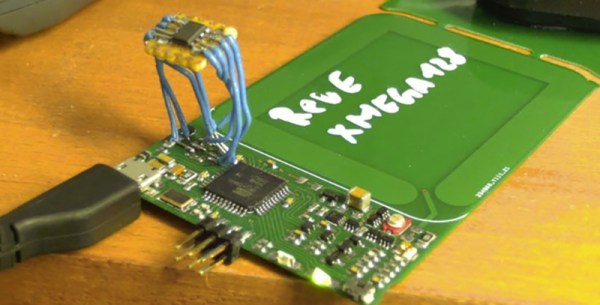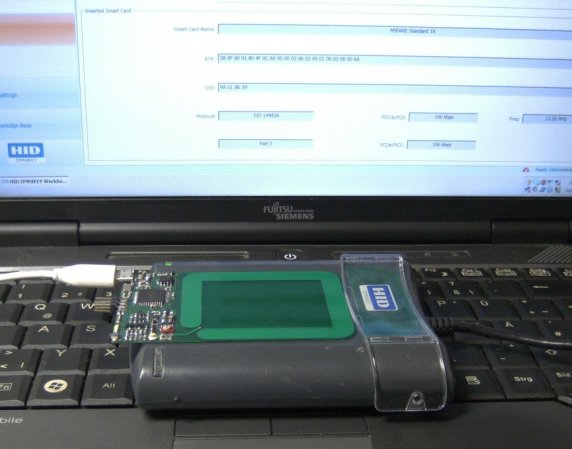A few years ago, we saw a project from a few researchers in Germany who built a device to clone contactless smart cards. These contactless smart cards can be found in everything from subway cards to passports, and a tool to investigate and emulate these cards has exceptionally interesting implications. [David] and [Tino], the researchers behind the first iteration of this hardware have been working on an improved version for a few years, and they’re finally ready to release it. They’re behind a Kickstarter campaign for the ChameleonMini, a device for NFC security analysis that can also clone and emulate contactless cards.
While the original Chameleon smart card emulator could handle many of the contactless smart cards you could throw at it, there at a lot of different contactless protocols. The new card can emulate just about every contactless card that operates on 13.56 MHz.
The board itself is mostly a PCB antenna, with the electronics based on an ATXMega128A4U microcontroller. This micro has AES and DES encryption engines, meaning if your contactless card has encryption and you have the cryptographic key, you can emulate that card with this device. They’re also making a more expensive version that also has a built-in reader that makes the ChameleonMini a one-stop card cloning tool.












